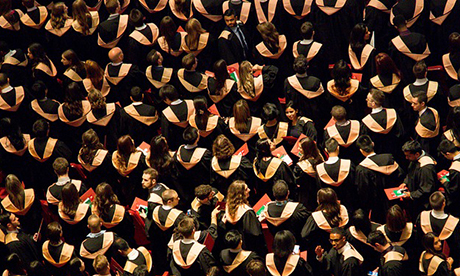
Ucas data reveal increase in domestic and international undergraduates this year
The number of students securing a place at their first-choice university has increased this year despite concerns following the A-level crisis and the Covid-19 pandemic.
Data from admissions body Ucas published on 24 September show that 397,990 undergraduate students have been placed at their firm choice university in the 28 days after A level results, a 5 per cent increase on the number of students placed this time last year.
Overall, the number of students securing a university place has gone up 4 per cent to 515,650. Clearing officially closes on 20 October but Ucas said in previous years—which showed similar trends—95 per cent of students were placed at his point in the admissions cycle.
But Paul Ashwin, professor of higher education at Lancaster University, said the increase in placed applicants was “simply due to a combination of the U-turn on A level results and the financial uncertainty that universities are facing,” which meant “more students achieved their offers and universities were more willing to accept students”.
“The most important question is how all new undergraduates will be supported by universities as they enter an unfamiliar educational environment in very unusual and difficult circumstances. This is what will impact on how many of these students succeed in higher education,” he said.
There had been concerns that uncertainty over how much online teaching students will receive during the coronavirus pandemic would put students off, or that the government’s U-turn on A-level results would skew the admissions process.
Despite widespread fears of a significant drop in the number of international students enrolling with UK universities, 42,930 non-EU international students are expected to start this year compared to 40,120 last year. The number of students from the European Union dropped from 30,050 in 2019 to 28,440 in 2020.
In total, the number of students in the UK deferring their places to next year has remained relatively static, increasing from 18,160 to 18,410. Students from England account for 16,900 of the deferrals, an increase of 300 on last year.
But there has been a rise in the number of international students deferring their places, from 1,430 in 2019—a similar figure to previous years—to 2,700.
A total of 28,030 students from the most disadvantaged backgrounds in the UK have secured places at university, up 8 per cent on last year. Ucas said the figures represented a record number of disadvantaged students going to university.
Graeme Atherton, director of access and participation charity NEON, said the rise “shows the strength in demand” among disadvantaged students for higher education.
He added that “while there are some, including those in government, who question the importance of higher education to those from disadvantaged backgrounds”, universities “need to re-double outreach efforts to enable more of these learners to reach the point where they can apply for higher education”.